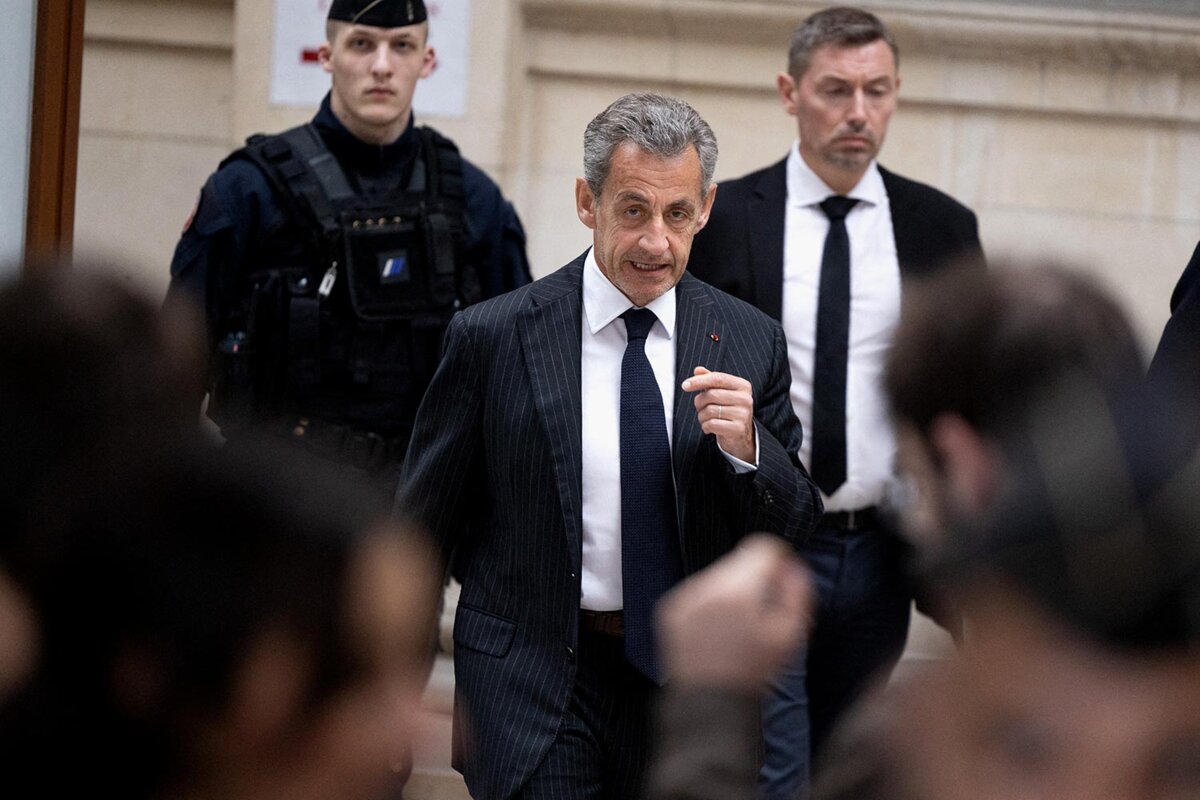Former French president Nicolas Sarkozy has lost his final appeal against conviction for the illegal financing of his unsuccessful 2012 campaign to be re-elected. The verdict delivered by the country's highest appeal court, the Cour de Cassation, means that the ex-head of state has now been definitively convicted in two cases. The other was in the so-called 'Bismuth' phonetap affair in which he was found guilty of influence peddling and corruption.
In September Nicolas Sarkozy was also convicted of criminal conspiracy over the scandal concerning Libyan funding of his 2007 election campaign, for which he was briefly sent to jail. However, he has since appealed against that verdict and under French law that means he benefits from a presumption of innocence in that case.
In the current case, the Cour de Cassation's ruling on November 26th upheld a judgement by the Paris court of appeal in February 2024 handing the ex-president a one-year sentence, with six months suspended, in the 2012 election funding case. This is often referred to as the 'Bygmalion' affair after the name of the public relations firm involved. The Paris appeal court's verdict had been more lenient than the court at first instance, which had handed Nicolas Sarkozy a one-year custodial sentence after convicting him of illegal election financing.
The custodial part of the sentence given by the appeal court can be converted into an alternative punishment and Nicolas Sarkozy could again be forced to wear an electronic ankle tag, as he did for three months over the 'Bismuth' case. That corruption case was his first definitive conviction, after his last appeal was thrown out in December 2024. He had been sentenced to three years in prison, including one year to serve under electronic monitoring, and last May was granted an alternative punishment because of his age.

Enlargement : Illustration 1

On October 8th 2025, during the appeal hearing in the criminal chamber of the Cour de Cassation in the Bygmalion case, the erudite arguments put forward by the former president’s lawyers, Emmanuel Piwnica and Patrice Spinosi, echoed those made in 2016 when Nicolas Sarkozy was first placed under formal investigation. His lawyers claimed that the breach of the 2012 presidential campaign’s spending cap had already been punished by France's top constitutional body, the Conseil Constitutionnel, and that, in any case, Nicolas Sarkozy had not been involved in the issues at stake in that case.
“It's not a question of deciding whether a second prosecution was possible, but whether the criminal law judge has the power to revisit a breach already fixed by the Conseil Constitutionnel,” argued Patrice Spinosi. “What weight would the Conseil Constitutionnel’s rulings have if it were enough to bring new facts to hand to call them into doubt?” asked the lawyer, who invoked the notion of “legal certainty” against the risk of “convicting at any cost”.
“Nicolas Sarkozy seeks justice,” he said. “Whenever he has stood before judges, he has asked to be treated like any other defendant.”
This legal reasoning overlooked a key point: in July 2013 the Conseil Constitutionnel had merely endorsed a ruling by the election funding body, the Commission nationale des comptes de campagne et des financements politiques (CNCCFP), which itself has no power to investigate election spending and relies only on the documents and records provided by candidates. In December 2012 the commission had rejected Nicolas Sarkozy’s accounts, but only because of a tiny overspend of 363,615 euros on a legally-capped spending ceiling of 22.5 million euros.
But the judicial investigation that followed, as the wrongdoing in the Bygmalion affair came to light, exposed a systematic and wide-ranging doctoring of the accounts for this United States-style election campaign. It is now known that Nicolas Sarkozy’s 2012 campaign smashed all the spending limits and cost the sizeable sum of 42.8 million euros. The prosecution claimed that Sarkozy's right-wing UMP party had worked with a public relations firm, Bygmalion, to hide the true cost of the campaign, and that a system of double-billing had been used.
Another point raised by the former head of state’s lawyers concerned intent. “No material proof can be pinned on President Sarkozy in the unlawful funding offence, and a fortiori there can be no intent,” insisted Emmanuel Piwnica. His lawyer said that Nicolas Sarkozy had “given no spending order” and “had not been informed from day to day about any overspend”. These points had already been made at both trials but had failed to sway the judges, either at first instance or on appeal.
Three other defendants had joined the appeal lodged by Nicolas Sarkozy: the election campaign director Guillaume Lambert and former officials from the UMP - now the Les Républicains party - Éric Cesari and Pierre Chassat. In all, 28 “grounds” of appeal with no fewer than 86 “sub-arguments” were raised by the lawyers in their written pleadings. Some argued, for instance, that the presence of a fourth associate judge during the hearings and the deliberations should lead to the ruling of the appeal court being quashed. It was a procedural fight that the defence has now lost.
--------------------------------------------------------------------------------
- The original French version of this article can be found here.
English version by Michael Streeter


